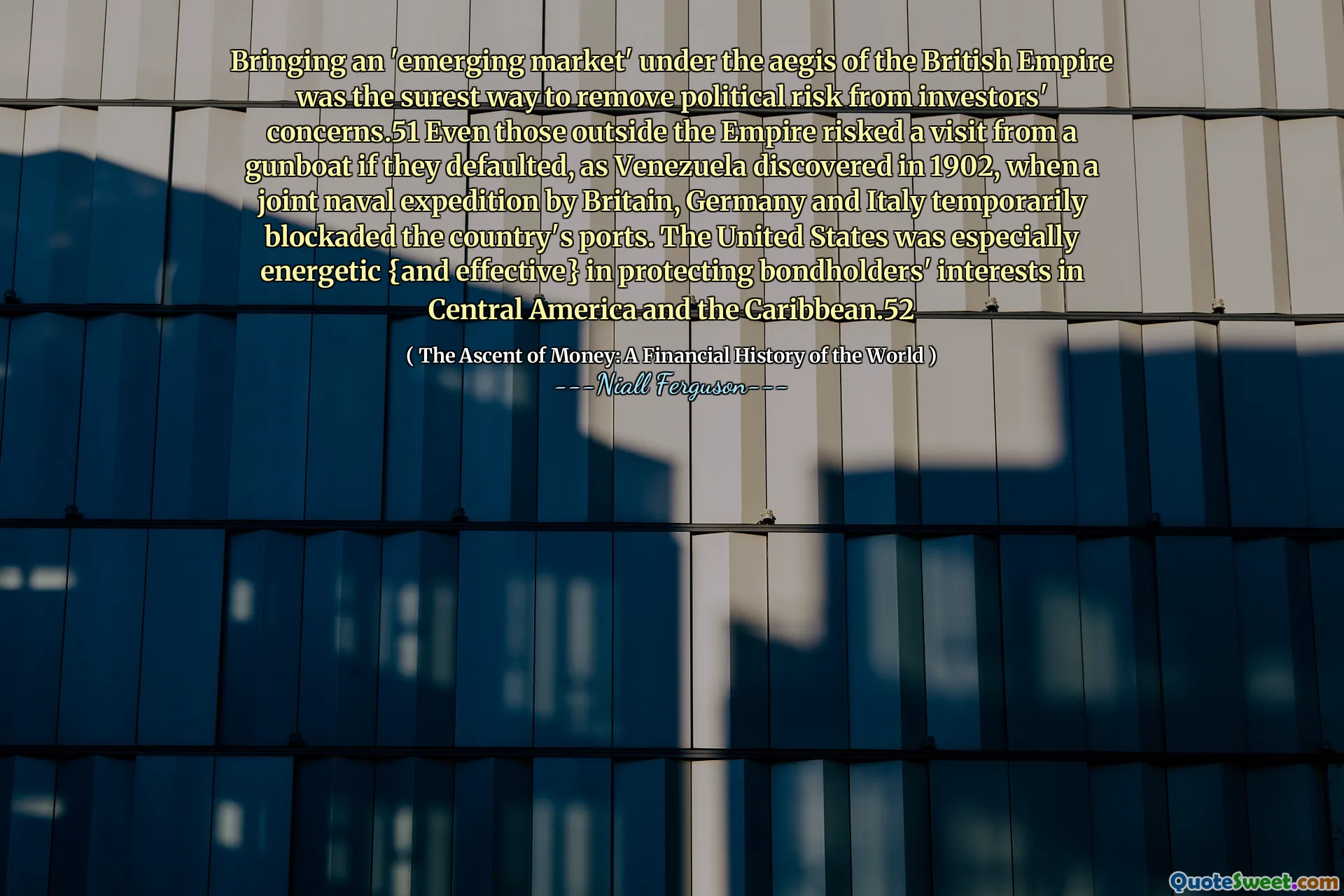
Bringing an 'emerging market' under the aegis of the British Empire was the surest way to remove political risk from investors' concerns.51 Even those outside the Empire risked a visit from a gunboat if they defaulted, as Venezuela discovered in 1902, when a joint naval expedition by Britain, Germany and Italy temporarily blockaded the country's ports. The United States was especially energetic {and effective} in protecting bondholders' interests in Central America and the Caribbean.52
Integrating an 'emerging market' into the British Empire effectively mitigated investors' political risk. This strategy provided a safeguard for investors, ensuring that even those from outside the Empire faced severe repercussions for defaults, as highlighted by the 1902 blockade of Venezuela by Britain, Germany, and Italy. This demonstrates the lengths to which the Empire would go to protect its financial interests.
The United States also played a significant role in safeguarding bondholders' interests in Central America and the Caribbean, showcasing a proactive approach to investment security in these regions. This historical context illustrates how imperial powers managed political and financial risks to ensure stability for investors and maintain control over emerging markets.











